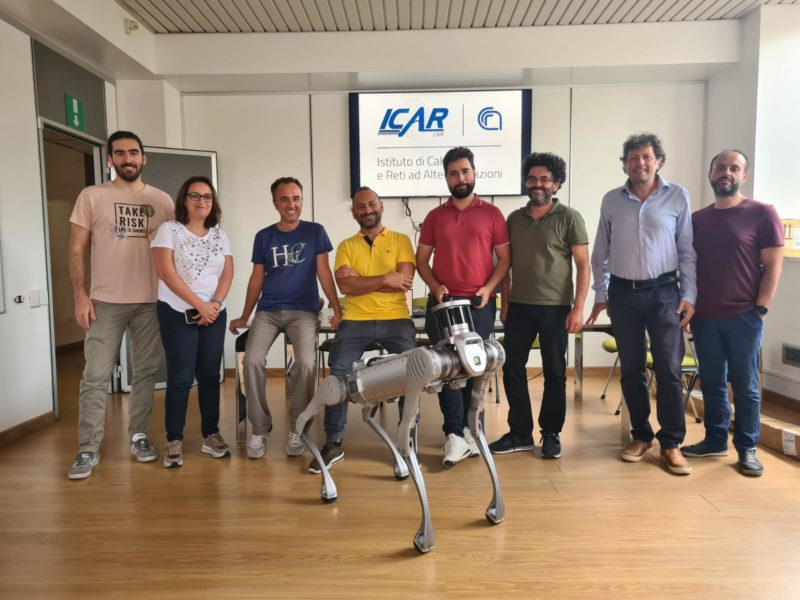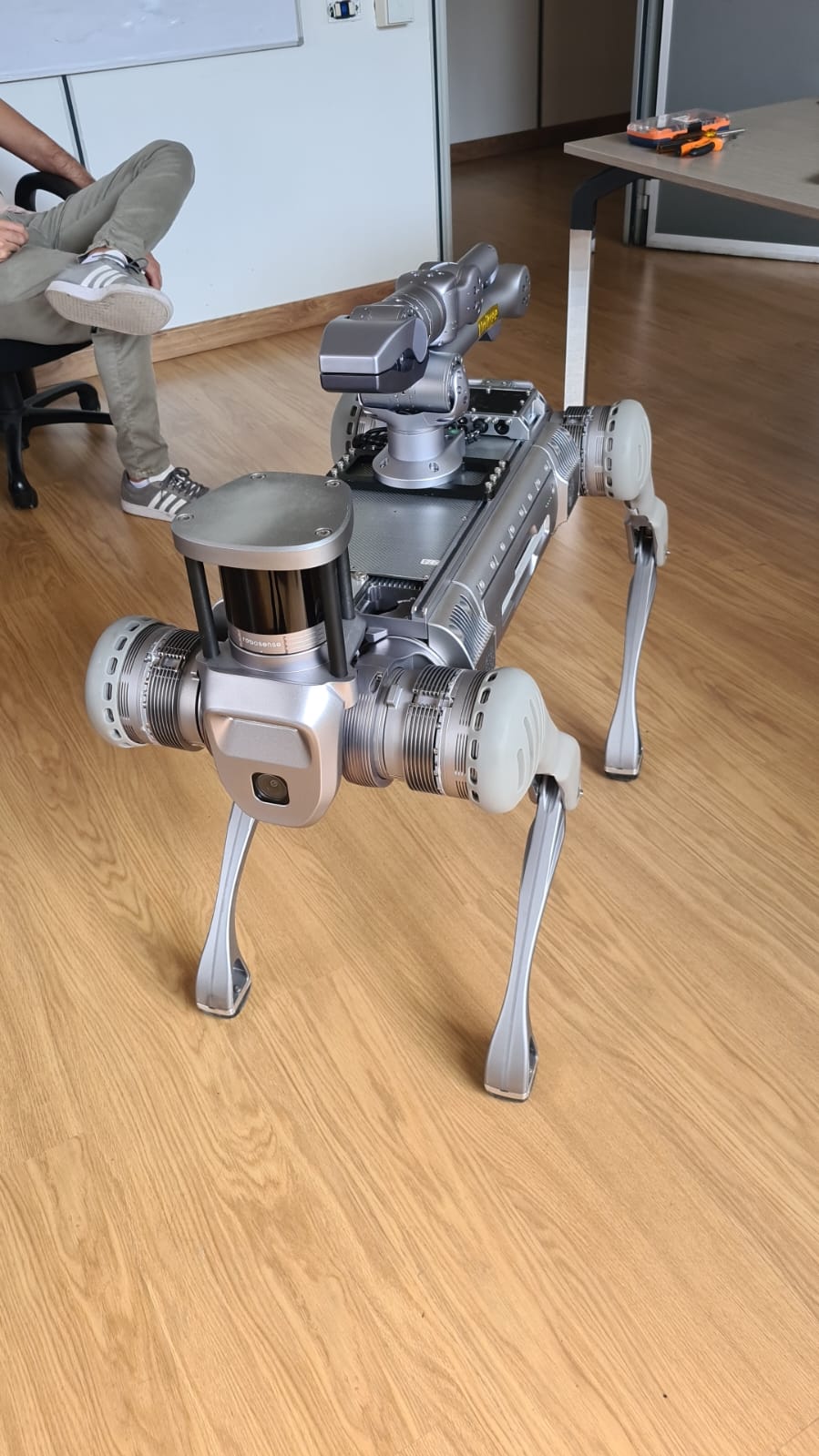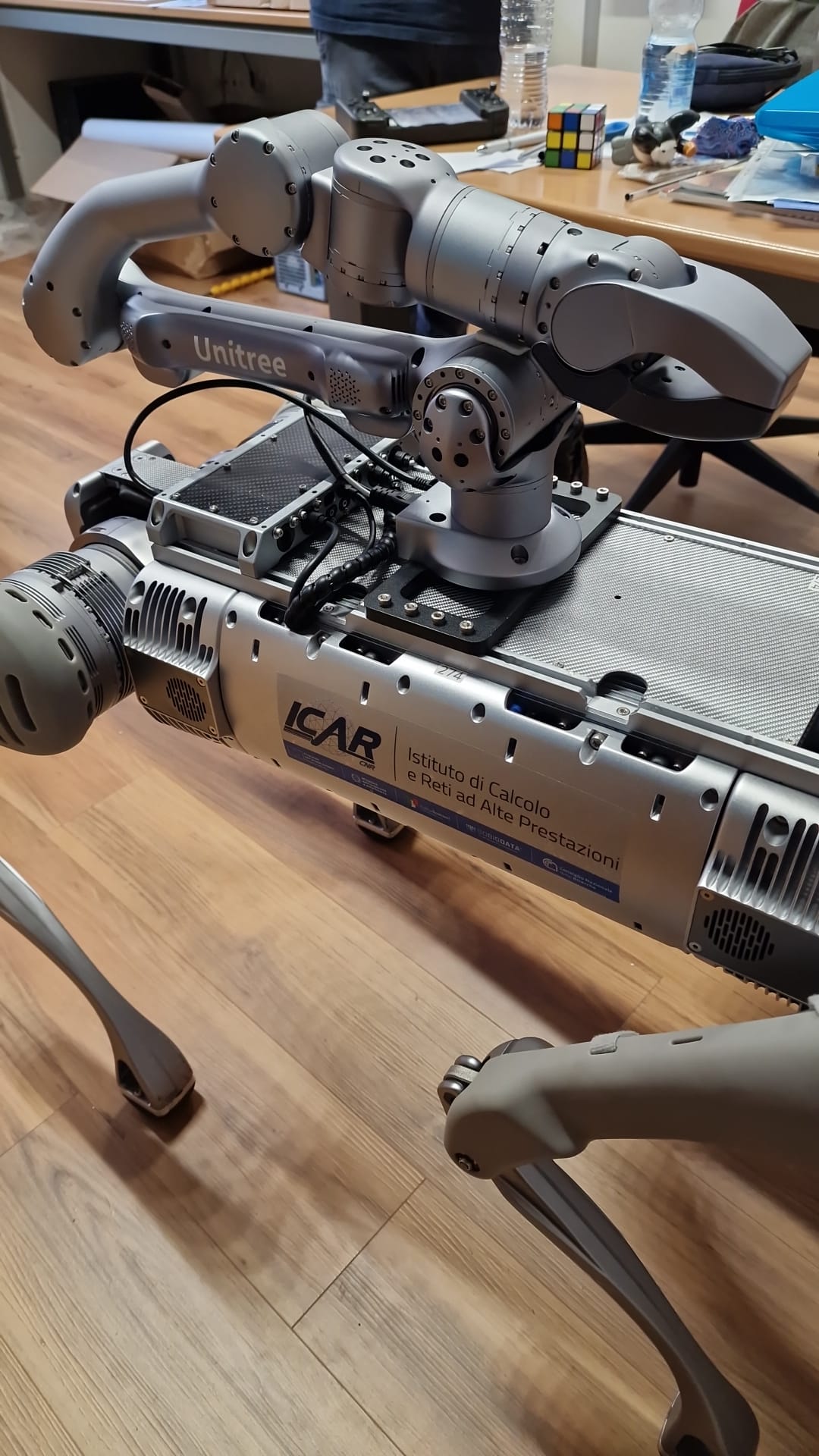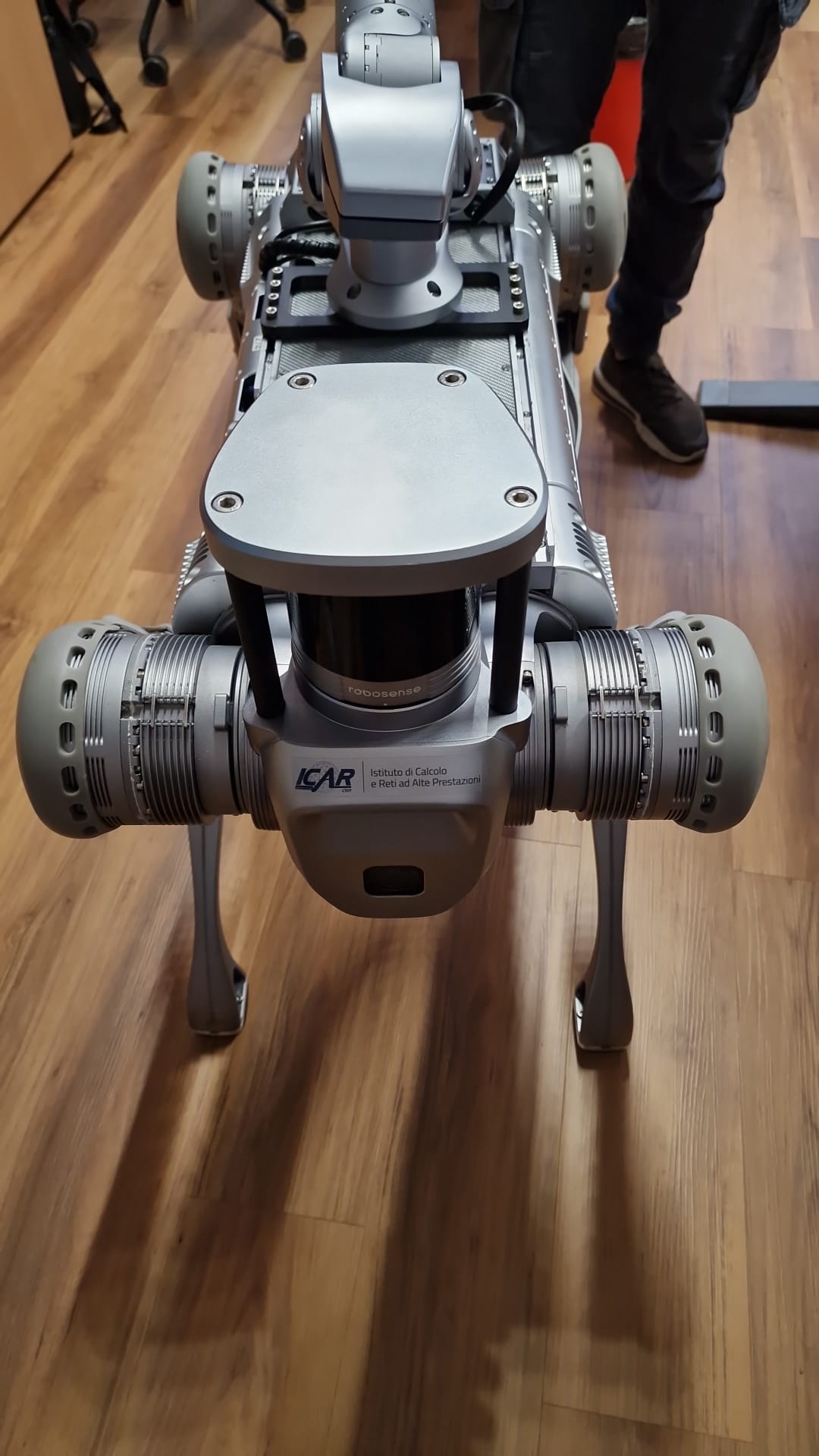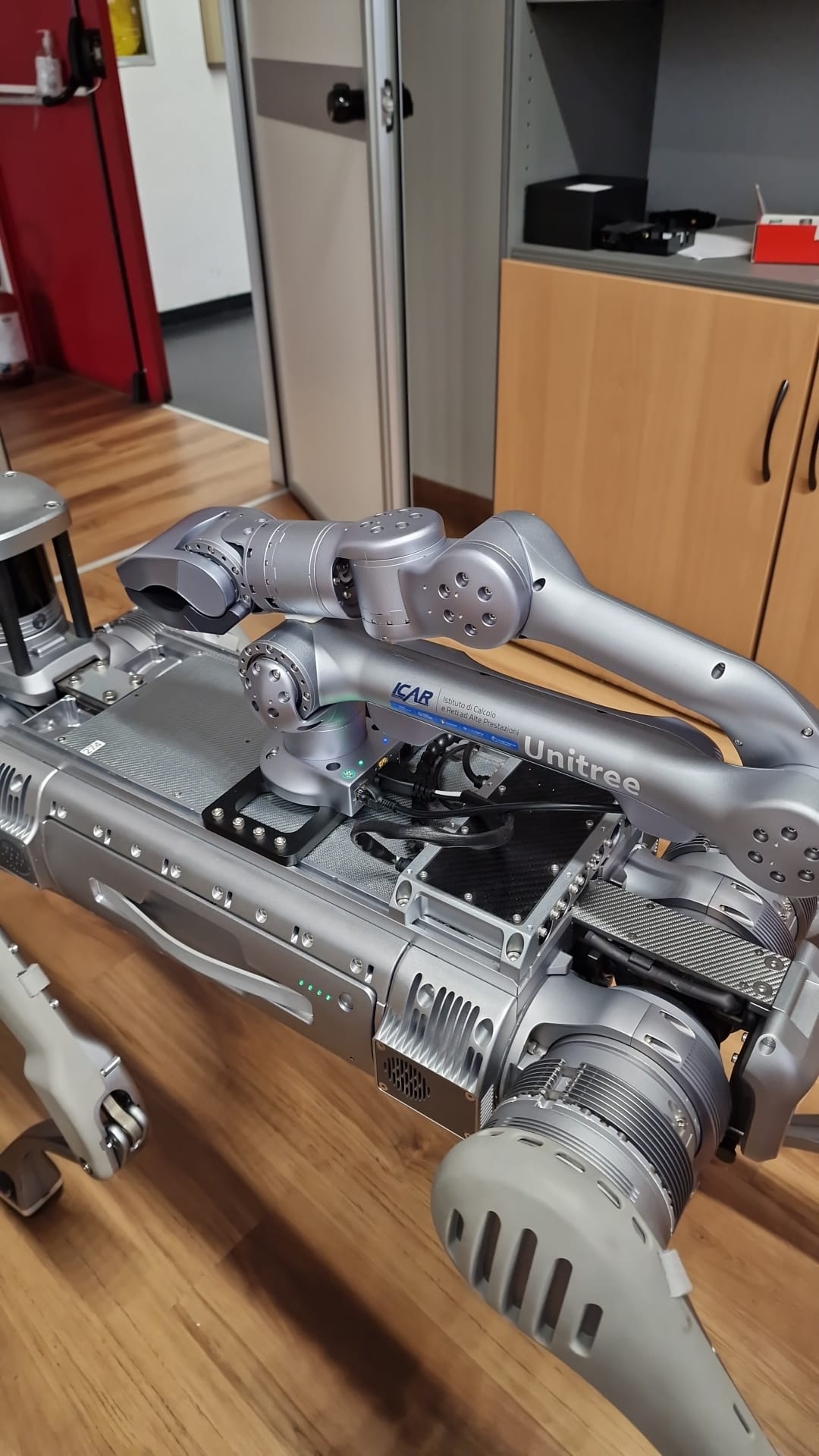The Institute for High-Performance Computing and Networks (ICAR-CNR), located in Rende (CS), within the University of Calabria, has recently strengthened its commitment to technological innovation by acquiring state-of-the-art equipment to enhance advanced research and applications in the industrial and medical sectors. The synergy between ICAR and the University of Calabria contributes to a stimulating research environment, fostering the exchange of ideas and cooperation among researchers.
Among the most innovative technologies introduced is the Unitree B2 quadruped robot, an advanced mobile robotic system capable of operating autonomously in complex environments. This technology has applications in various fields, from advanced robotics to automation, and is a valuable asset for experimental research.
ICAR-CNR has also acquired the portable EEG headset, a device designed for real-world applications that enables real-time monitoring of brain activity. This technology opens new frontiers in human-machine interfaces, enabling advanced interactions in dynamic and complex environments.
Another novelty is the next-generation smart glasses, including the Magic Leap 2 Developer Pro and Epson Moverio BT-45CS. These smart glasses offer augmented reality functionalities and integrate voice commands, head tracking, eye tracking, and hand gesture recognition, making them highly versatile tools for industrial and medical applications. In particular, they are ideal for real-time data visualization, assistance in technical and surgical operations, and guidance in complex environments.
Thanks to these advanced technologies, ICAR-CNR aims to attract a new generation of researchers, creating a stimulating and innovation-driven environment. The close collaboration with the University of Calabria allows the full potential of multidisciplinary research to be harnessed, fostering the growth of scientific and technological knowledge.
With this investment in cutting-edge technologies, ICAR-CNR confirms itself as a center of excellence, capable of training and supporting future researchers while continuing to lead innovation in addressing real-world challenges.

